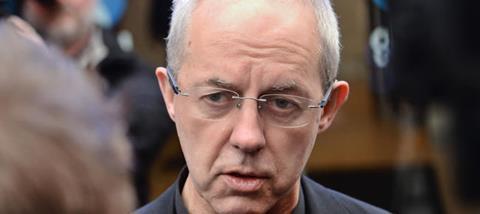
It is with horror that most of us became aware of the ghastly detail of alleged abuses by John Smyth that took place at his home in the late 1970s and early 1980s.
It is right that we should be so repelled by such detail. Even for those of us whose professions have led us to hear many similar accounts, we should still be deeply moved at the gross betrayal and abuse of trust that would lead to the alleged physical assaults perpetrated in this case.
Many might point the finger at the range of people who could quite rightly be held responsible for stopping and reporting such a catalogue of crimes. It is true that both law and practice have come a long way since the early 1980s, but we should be cautious not to offer this as an excuse for the failures to deal with the concerns that were apparently known about not long after the period of time during which these horrendous assaults allegedly took place.
It is certain that such excuses would go nowhere to relieve the suffering of those who experienced the alleged abusive behaviour of John Smyth. This would be both inhumane and totally lacking in understanding and compassion for the victims attending the summer camps. There can be no excuses offered and the necessary calls for lessons to be learned can only go so far in addressing what will have been an extremely painful and traumatic experience.
We should be aware that alongside allegations of physical abuse, there would also have been significant emotional and spiritual abuse co-existing in such repeated acts of violence. The impact upon the spiritual life of victims from the inappropriate, harmful and twisted use of scripture to support any form of abuse should never be under-estimated. But this would not be an isolated case. Abusing the position of trust given to religious leaders (of any religious background) by justifying acts of such violence with distortions of scripture goes against every grain of how Christ Himself taught us to honour, value and protect "the little ones" (Matthew 18:6).
It is time for the Church to wake up to the realisation that this deep and dark form of abuse is doing damage to our children
All too often, children, young people and adults walk away from God and the Church because their sense of the personhood and character of God has been shattered beyond (apparent) repair by those whose own brokenness leads them to perpetrate such abuses in his name. It is time for the Church to wake up to the realisation that this particularly deep and dark form of abuse is doing some of the greatest damage to the children we should be most keen to protect.
So what of the apology offered by Archbishop Justin Welby for such horrific acts? Many will have asked themselves "what use was the apology if he wasn’t involved in the abuse?" For some this will remain a mystery, but for many such an apology will represent an acknowledgement that the abuse did indeed happen. That alone may represent a significant departure from what they might have expected in years gone by.
Offering an apology does not necessarily accept that blame lies with the person giving the apology, but it says "what happened to you was unacceptable and I am sorry for your suffering". It gives the opportunity to distance oneself from the offence and to offer the victims a hand of solidarity, comfort and peace.
In Matthew 9:36, the writer tells us that Jesus saw the crowds and was "moved with compassion". He was "moved". He did move – towards them and offered them everything despite having no direct responsibility or obligation to do anything. So, it might be argued that in this apology offered by Justin Welby, he may well have felt compelled or moved with compassion to such a degree that although carrying no direct responsibility, he chose to reach out and do what might now be done to make amends for the actions of others.
As we continue to watch and wait for the story to unfold and for justice to be sought, let’s remember that at the heart of the matter are the cries of those who want to be heard. Let’s not be complicit in muffling their voices. Every discovery presents a new opportunity, so let’s pray that our pursuit of good, safer practice and the recognition of the risk presented by complacency truly begins to shape the place of safety that the Church should be.
Justin Humphreys is Executive Director (Safeguarding) at the Churches’ Child Protection Advisory Service (CCPAS). For more information visit ccpas.co.uk
Click here to request a free copy of Premier Christianity magazine



























